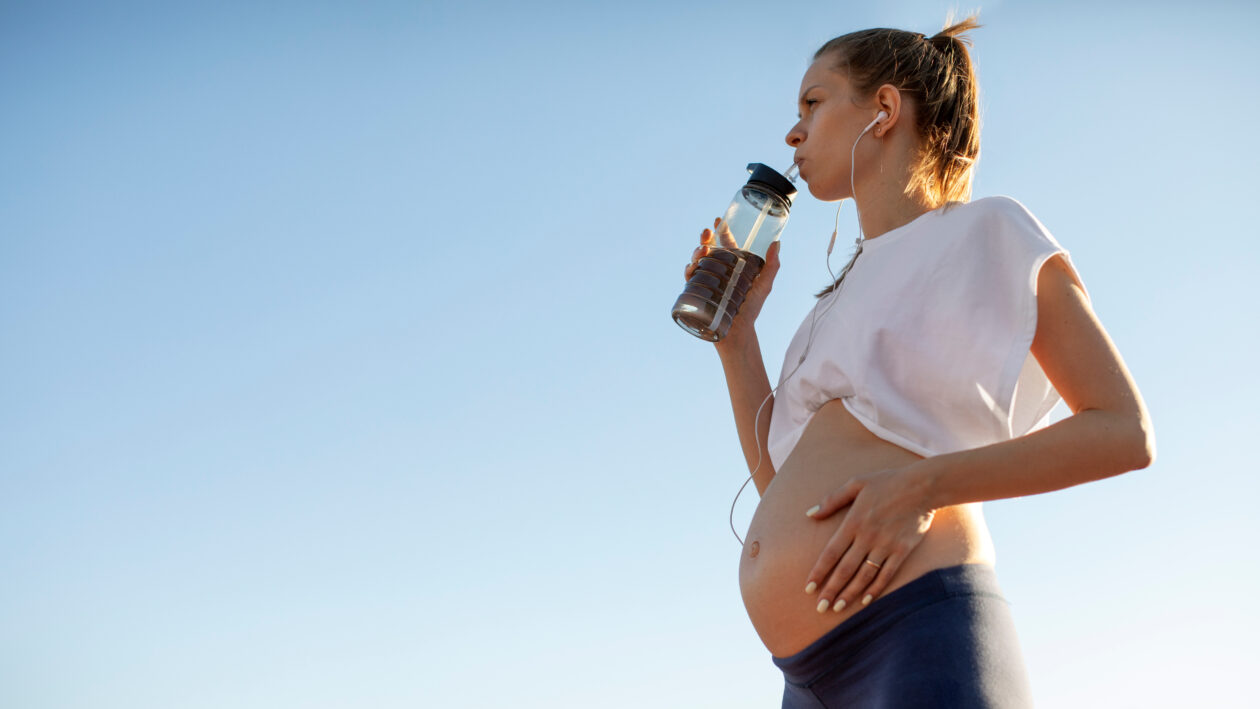Introduction
Staying hydrated during pregnancy is crucial for the mother and the developing baby. While water is the primary source of hydration, many women may wonder if vitamin water is a safe and beneficial option during this time. In this article, we will explore the question, “Can You Drink Vitamin Water While Pregnant?” and delve into related topics to understand hydration during pregnancy comprehensively.
Can You Drink Vitamin Water While Pregnant?
The short answer is that pregnant women can drink vitamin water with caution. Vitamin water can be a refreshing alternative to plain water and may provide additional nutrients. However, it’s essential to read labels carefully and choose varieties low in added sugars and artificial ingredients. Pregnant women should also avoid vitamin waters with high caffeine content.
The Importance of Hydration During Pregnancy
Proper hydration is essential for supporting the increased blood volume, aiding digestion, and delivering nutrients to the baby during pregnancy. While water is the best choice for hydration, some women may struggle to drink enough plain water and may opt for flavored alternatives like vitamin water.
Benefits of Vitamin Water During Pregnancy
Vitamin water can offer some benefits during pregnancy, such as providing additional vitamins and minerals that support maternal and fetal health. Some varieties of vitamin water contain added nutrients like folic acid, calcium, and vitamin D, which are essential for a healthy pregnancy.
Considerations When Choosing Vitamin Water
When selecting vitamin water during pregnancy, it’s crucial to consider the ingredients. Pregnant women should opt for varieties low in added sugars, artificial flavors, and preservatives. Limiting caffeine intake and choosing caffeine-free options or those with minimal caffeine content is also essential.
Healthy Hydration Alternatives
While vitamin water can be a convenient option for staying hydrated during pregnancy, several other healthy alternatives should be considered. These include plain water, herbal tea, coconut water, and natural fruit juices. Pregnant women should aim to consume various fluids to ensure adequate hydration.
Consultation with Healthcare Provider
Pregnant women must consult their healthcare provider before incorporating vitamin water into their routine, as with any dietary choice during pregnancy. Healthcare providers can offer personalized advice based on individual health needs and preferences.
Conclusion
In conclusion, vitamin water can be a safe and beneficial option for staying hydrated during pregnancy, as long as pregnant women choose varieties low in added sugars and artificial ingredients. However, it’s essential to consult a healthcare provider before making dietary changes during pregnancy. By prioritizing hydration and making informed choices, pregnant women can support their health and the health of their growing baby.
References
How much water should I drink during pregnancy? (2020). Acog.org. https://www.acog.org/womens-health/experts-and-stories/ask-acog/how-much-water-should-i-drink-during-pregnancy
Office. (2021). Spilling the Beans: How Much Caffeine is Too Much? U.S. Food and Drug Administration. https://www.fda.gov/consumers/consumer-updates/spilling-beans-how-much-caffeine-too-much
Was this helpful?

Joseph Emb, RDN
Founder of StyleVitally.com | Registered Dietitian & Wellness Advocate
What I Cover:
I’m passionate about connecting nutrition science and everyday wellness to help people live healthier, more vibrant lives. I write about evidence-based nutrition, mindful eating, sustainable lifestyles, and holistic well-being at StyleVitally.com.
My Background:
The University of Texas in Austin, where I earned my Dietetics diploma, laid the groundwork for my nutrition and health career. My training and hands-on experience taught me the science and art of using nutrition to enhance health and well-being.
Professional Journey:
I’m an RDN with lots of experience. I’ve helped people seeking tailored nutritional recommendations in clinical settings and community outreach programs. My constant learning and professional development ensure that my recommendations are always based on the latest evidence.
Ethical Commitment:
My practice prioritizes integrity. My content is transparent and objective, following the most significant ethical standards. I can give my audience unbiased advice because I’m not affiliated with food businesses or industry associations. I want to help people make informed health decisions that match their values and ambitions.
Join Me on the Wellness Journey:
Join me on the path to vitality and well-being, whether facing nutritional issues, seeking sustainable lifestyle changes, or simply wanting a better, happier you. We’ll discover how diet, mindfulness, and holistic well-being can maximize your potential.









